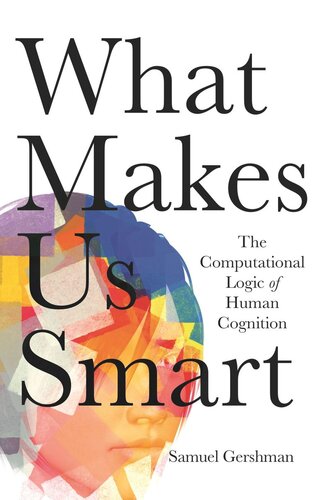

Most ebook files are in PDF format, so you can easily read them using various software such as Foxit Reader or directly on the Google Chrome browser.
Some ebook files are released by publishers in other formats such as .awz, .mobi, .epub, .fb2, etc. You may need to install specific software to read these formats on mobile/PC, such as Calibre.
Please read the tutorial at this link: https://ebookbell.com/faq
We offer FREE conversion to the popular formats you request; however, this may take some time. Therefore, right after payment, please email us, and we will try to provide the service as quickly as possible.
For some exceptional file formats or broken links (if any), please refrain from opening any disputes. Instead, email us first, and we will try to assist within a maximum of 6 hours.
EbookBell Team

4.0
56 reviewsHow a computational framework can account for the successes and failures of human cognition
At the heart of human intelligence rests a fundamental puzzle: How are we are incredibly smart and stupid at the same time? No existing machine can match the power and flexibility of human perception, language, and reasoning. Yet, we routinely commit errors that reveal the failures of our thought processes. What Makes Us Smart makes sense of this paradox by arguing that our cognitive errors are not haphazard. Rather, they are the inevitable consequences of a brain optimized for efficient inference and decision making within the constraints of time, energy, and memory—in other words, data and resource limitations. Framing human intelligence in terms of these constraints, Samuel Gershman shows how a deeper computational logic underpins the “stupid” errors of human cognition.
Embarking across psychology, neuroscience, computer science, linguistics, and economics, Gershman presents unifying principles that govern human intelligence. First, inductive bias: any system that makes inferences based on limited data must constrain its hypotheses in some way before observing data. Second, approximation bias: any system that makes inferences and decisions with limited resources must make approximations. Applying these principles to a range of computational errors made by humans, Gershman demonstrates that intelligent systems designed to meet these constraints yield characteristically human errors.
Examining how humans make intelligent and maladaptive decisions, What Makes Us Smart delves into the successes and failures of cognition.